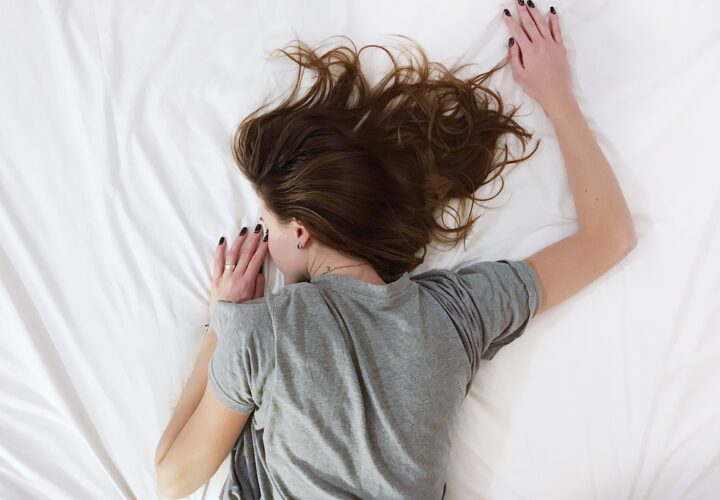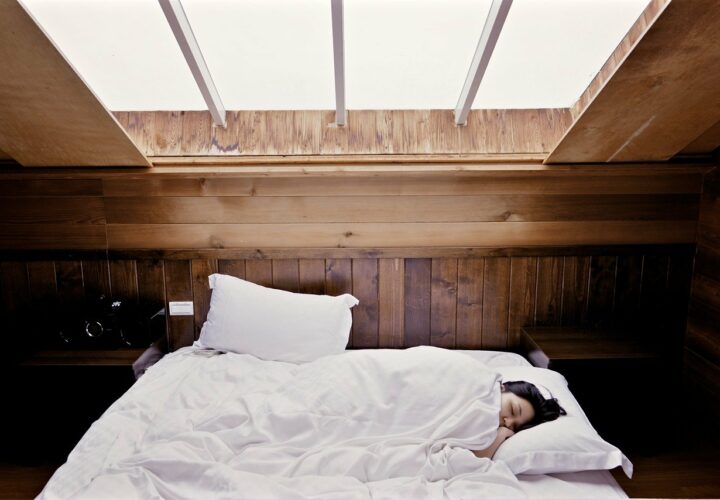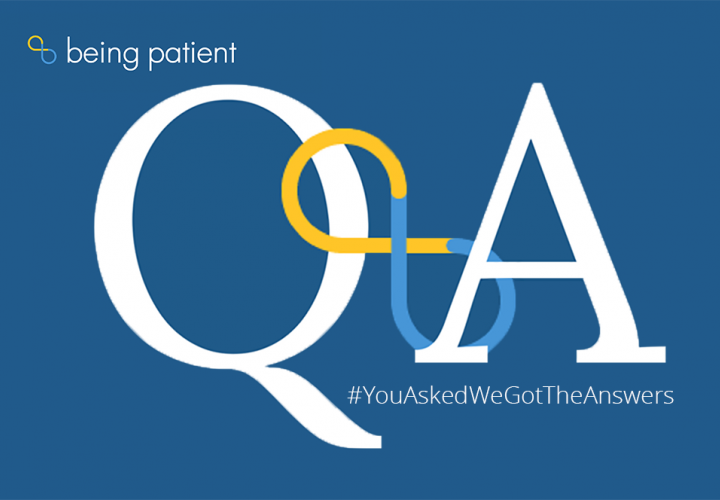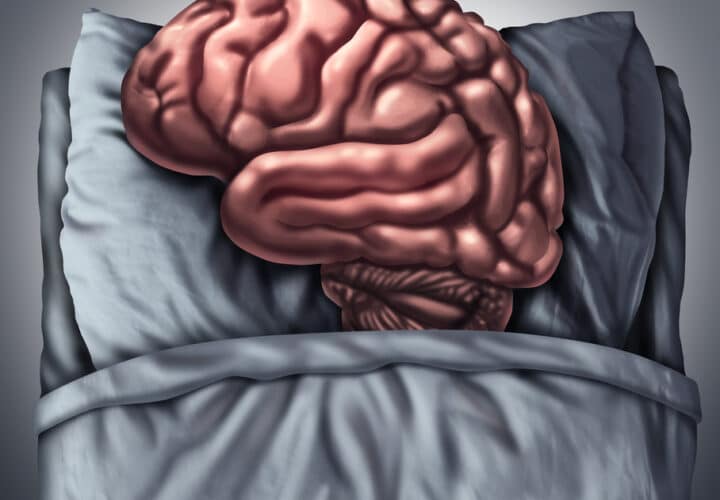Alzheimer's and dementia experts tackle reader questions on Alzheimer's sundowning symptoms.
What stage of Alzheimer’s is sundowning? What are the early signs, how long does it last, how common is it, are their medications for it, and what time of day does it start? We put our readers’ most pressing questions about sundowning syndrome and its symptoms in people with Alzheimer’s and dementia to experts. Here’s what we learned.
First off: What is sundowning in dementia?
Sundowning is a common symptom of various forms of dementia — particularly Alzheimer’s disease. It’s characterized by worsening behaviors and psychological changes that come about each day, in the late afternoon and evening — around sundown. In sundowning a certain set of these personality changes tend to intensify as the day progresses, typically peaking around sunset. They might include:
- agitation
- confusion
- anxiety
- irritability
- restlessness
Because of the parts of the brain dementia affects, people living with dementia often have a tough time processing information and regulating their emotions, and this can be exacerbated during the evening hours, too.
Understanding the underlying factors and implementing appropriate management strategies can help knock back the effects of sundowning and boost the quality of life for people living with dementia — and for their a caregiver, care partner or loved one.
At what stage of Alzheimer’s dementia is sundowning?
Family members and caregivers of someone with a recent Alzheimer’s or dementia diagnosis often wonder at what stage of dementia sundowning occurs. The truth is, every person with Alzheimer’s has a different experience, and sundowning can happen at any stage of dementia. That said, it is most common in the middle and later stages of the disease.
What causes sundowning in Alzheimer’s?
The exact cause of sundowning is not fully understood, but several factors are believed to contribute. Those might include disruptions in the internal body clock, sensory overstimulation, fatigue, and the decreased ability to cope with changing light conditions.
Researchers believe disturbances in Alzheimer’s patients’ sleep patterns could stem from several factors: the reversal in patients’ circadian rhythms, causing them to stay up at night and to sleep during the day; the fact that as we age, we release less melatonin, a hormone that promotes sleep; sleep disorders like sleep apnea, where breathing repeatedly stops and starts.
Recent studies have found that people with disturbed sleep patterns are more likely to have a build-up of beta-amyloid plaques in the brain, the toxic protein associated with Alzheimer’s disease. According to sleep scientists, the brain cleanses itself during deep sleep and removes beta-amyloid. Too much beta-amyloid may affect the brain’s ability to convert short-term memories to long-term memories.
Is it possible to have sundowning and not have dementia?
Sundowning isn’t a disease — it’s just a group of symptoms that tend to appear in the evenings when the light of day starts to fade. These symptoms often affect people with Alzheimer’s disease and other types of dementia — and it’s possible that a medication side effect, pain, depression or other medical condition — from a urinary tract infection to sleep apnea — could contribute and make sundowning worse or more evident. It’s important to consult with your loved one’s doctor if you see signs of sundowning and if the person doesn’t have a dementia diagnosis, consider cognitive testing.
What are the early signs of sundowning?
Sundowning refers to the worsening of behavioral and emotional issues among people with Alzheimer’s or dementia as daylight begins to fade. Seasonal changes can influence sleep schedules and depression, particularly among people with dementia.
Being Patient reporters have heard stories from people living with dementia and their care providers who say seasonal changes are quite difficult for them, with winter time often associated with depression and sleep issues. We asked dementia caregiving expert Christy Turner what we know about these experiences.
“We know it’s a problem, for sure,” Turner said in an interview about managing sundowners’ mood swings, cognitive symptoms and behavioral changes. “That’s typically when we see more of what’s called Sundowning, which is where someone’s behavior changes later in the afternoon. We see it more often when there’s a time change and we come off of daylight saving time and back into standard time. Our body uses environmental cues like the sun to identify what time of day it is and what we should be doing,” she said.
“If you’re already living with a diagnosis, [light changes] can cause confusion, and it makes it very tough to figure out what’s going on here,” she added. “The other thing is that our body naturally starts producing less and less melatonin as we age. Typically people living with an Alzheimer’s diagnosis or another neurodegenerative disorder are over age 70, so it’s kind of a double whammy.”
What time does dementia sundowning start?
What time of day is best for dementia patients — and what time is worst? One might expert these symptoms to start emerging at, well, sundown — but as Turner told Being Patient, it can vary case to case depending on all manner of factors that help the body understand what time of day it is.
“Our body uses environmental cues like the sun to identify what time of day it is and what we should be doing,” Turner said. “Almost nobody feels great after Daylight Saving Time stops anyway, and when you add a neurodegenerative disorder on top of that, it’s even more challenging for the person.”
Being Patient spoke to a neurological health and sleep disorders specialist, Smita Patel, D.O. at NorthShore University HealthSystem’s Neurological Institute, about how to ease the symptoms of sundowning — and when these symptoms might be most or least present.
“The best thing to do when patients experience sundowners syndrome is to try to keep a regular schedule,” Patel told Being Patient. “You can keep the room dark when it’s nighttime so that they can be in a dark space. Then, expose them to light in the morning when they’re waking up and during the day. Keep them active so that they don’t fall asleep, and try to keep a routine throughout the day.”
Turner agrees that keeping as much daylight as possible in the house is a great way to keep your biological clock in check. If you don’t live in a particularly bright location, she said, look into purchasing lightbulbs that mimic daylight, avoiding fluorescent lights frequently used in offices.
Turner reinforced the importance of sticking to a consistent schedule, especially as it gets later in the day.
“The witching hour is typically right around dinner time, so that period right before dinner time, around 3:30 p.m. or so, and on from there is when it can start,” Turner said. “What will often happen is that caretakers want to start cooking dinner and the person with dementia is sort of left to their own devices.”
Instead of giving people too much of their own personal space during this time, Turner says engaging the patient with activities can help keep them on track — while giving them a sense of purpose at the same time.
Choose things they enjoy, she recommended — things that require the right amount of cognitive and/or physical stimulation for them, to help prepare them for a good night’s sleep.
How do you manage dementia sundowning?
Managing sundowning in dementia isn’t easy as there are so many potentially contributing environmental and health factors involved. Caregivers and healthcare professionals might employ strategies like establishing a consistent daily routine — which can offer big benefits for people living with dementia, in general, according to caregiving experts including Teepa Snow.
Other techniques for managing or lessening sundowning dementia symptoms include:
- ensuring proper exposure to natural light during the day
- reducing stimulating activities in the late afternoon and evening
- addressing any unmet needs, i.e. hunger or pain.
Medications may also be considered in quite serious cases, but their use is typically reserved as a last resort due to potential side effects.
What medications are used for sundowners syndrome?
Patel also weighed in on the medications and supplements families might consider to ease the symptoms of Alzheimer’s sundowning.
“Everyone is affected on an individual basis, so it’s hard for me as a physician to say, ‘Everybody should take this,'” Patel told Being Patient. “But in general, I find that patients who have dementia may do well with melatonin. Everybody’s usually familiar with melatonin. We don’t need large doses,” she added. “Anything from one to three milligrams can be helpful to sleep.”
Magnesium might also be recommended as a supplement to help with sleep issues and sundowning in people with Alzheimer’s and related forms of dementia. “With magnesium, you have to watch for other factors, such as if a patient has kidney problems, but magnesium can be very relaxing if you’re using minerals to help with sleep,” Patel advised.
Supplements versus prescription medicine for sundowners
In brains with Alzheimer’s, protein accumulates in the brain. Scientists are still studying the links between this pathology and the changes in patients’ sleep cycles, Patel said. One thing they do know for sure is the circadian rhythm, which regulates a person’s sleep, is often disrupted in dementia patients. That might lead to doctors prescribing sedatives, but these are not Patel’s approach of choice in people with Alzheimer’s or related forms of dementia.
“The good thing about melatonin and magnesium is that they’re not sedating, which will be better than prescription medication,” Patel said. “If someone takes medication at night, they’re sleepy or sedated, and then they wake up, and they’re still drowsy from the medication. Medication doesn’t really help with something like sundowners syndrome, and it doesn’t help patients participate in activities.”
Melatonin isn’t a sleeping pill, she noted, but it can help with the circadian rhythm. Research is underway into the links between sleep medications — like Z-drugs for insomnia — and heightened dementia and Alzheimer’s risk.
UPDATE, 3 November 00:01 a.m. ET: This November 2022 article was updated with new information for our readers and to meet our updated formatting standards.






